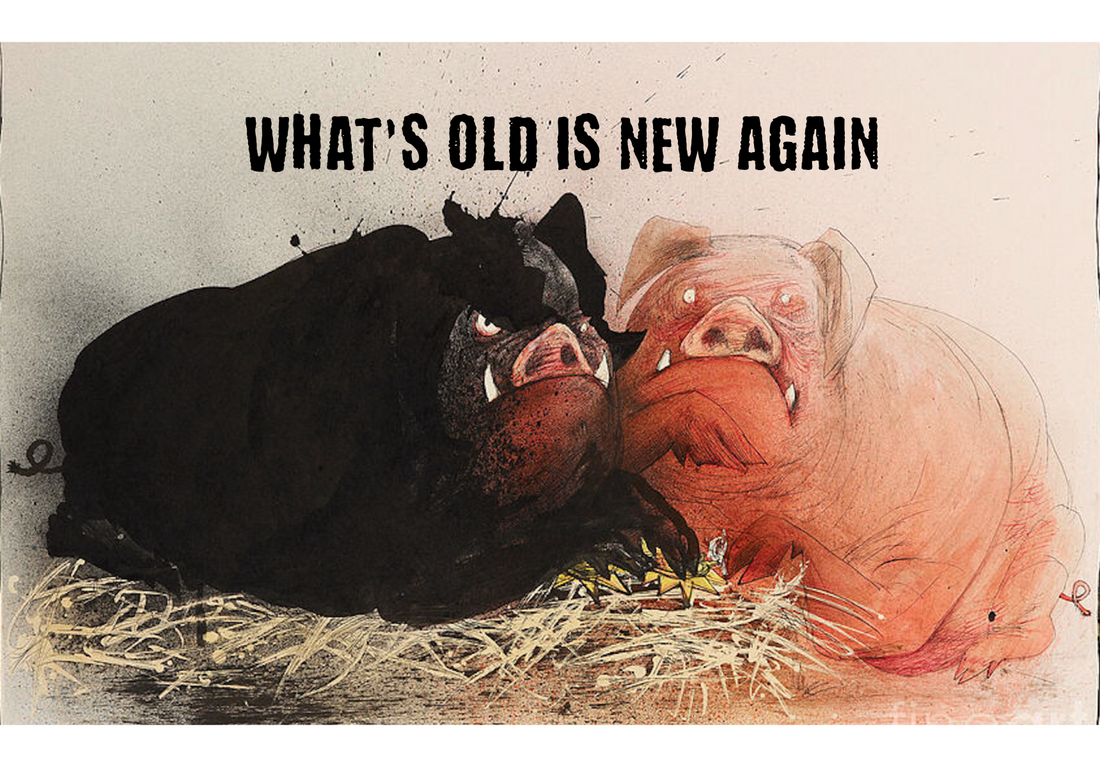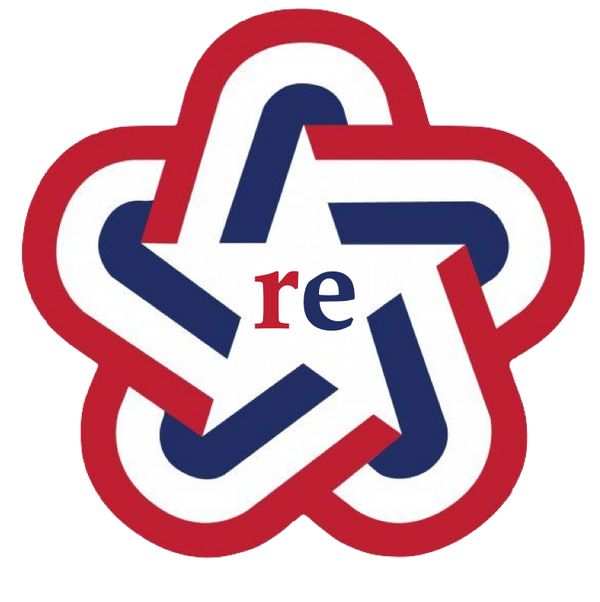
7 Warnings from Orwell
Share
Animal Farm and Modern American Politics
George Orwell’s Animal Farm is a timeless allegory about power, corruption, and the betrayal of revolutionary ideals. While it was written as a critique of the Soviet Union, and thus is often milabeled as a satire of socialism, its themes resonate far beyond any ideological system. In fact our own current American political landscape shares some eeriely familiar plot points with Orwell's barnyard classic. From the rise of political elites to the spread of misinformation, this animal revolution offers a mirror to modern America. Below we’ll explore the striking parallels between Animal Farm and today’s political climate, and why Orwell’s work should serve as a warning for our future and not a satire of history.
1. Promises of Change: New Leaders
In Animal Farm, the animals overthrow their human oppressor, Mr. Jones, dreaming of a better society. One in which they are not mistreated and have a say in how their lives play out.
Similarly, American political movements often begin with promises of transformative change. And Americans have long been used to wanting something better, something different. Campaign slogans like “Hope and Change” or “Make America Great Again” tap into a deep desire to give power to someone "different than whoever is in power right now. After all, whoever is in power now is the reason things don't work like they should, right? Yet, as Orwell shows, the gap between promises and reality, or percived reality, often widen once the new leaders take power.
Today, many Americans feel disillusioned by unfulfilled promises, the slow pace of meaningful change, the inability of whowever is in power to actually change the status quo. The initial hope of political change almost always gives way to the harsh realities of governance, ideology, and speical interests. And in some cases worse, sometimes the people give over power to corrupt or authoritarian leaders.
2. The Pigs: The Rise of the Elite
The pigs in Animal Farm—Napoleon, Snowball, and Squealer—are the ones promising change. The ones telling the animals to unify behind them and thier ideas. But once the animals begin to follow, the pigs very quickly become the ruling class, prioritizing their own interests over the collective good.
This mirrors the influence of political and economic elites in America. Lobbyists, corporations, career politicians, special interest groups, think tanks, billionaires, and other "elites," often shape policies that benefit the few at the expense of the many.
Like the pigs, these elites justify their actions with lofty rhetoric, claiming to act in the public’s best interest. Meanwhile, the average citizen feels increasingly disconnected from the levers of power.
3. Squealer: The Role of Propaganda
Squealer, the pig who spreads Napoleon’s propaganda, manipulates the truth, gaslights, and lies to maintain control. In modern America, partisan media, social networks, and political spin doctors play the exact same role. Misinformation and disinformation spread rapidly, creating echo chambers where facts are disputed, and truth becomes subjective.
Phrases like “fake news” are used to dismiss inconvenient truths, much like Squealer dismisses the animals’ concerns. Blaming others is used to shift focus away from those in power, just like Squealer and Napolean scapegoat Snowball. The result is a polarized society where finding common ground feels impossible.
4. The Seven Commandments: Eroding Democratic Values
The Seven Commandments of Animalism are gradually altered to justify the pigs’ actions, culminating in the infamous line: “All animals are equal, but some animals are more equal than others.” This reflects the erosion of foundational American values like equality, justice, and democracy.
For example, voting rights are enshrined in the Constitution, yet gerrymandering and restrictive voting laws undermine this principle. The gap between America’s ideals and its realities continues to grow, much like the gap between the animals’ dreams and their lived experience.
5. Boxer: The Plight of the Working Class
Boxer, the loyal horse, represents the working class. His motto, “I will work harder,” reflects the resilience of ordinary people. Yet, despite his contributions, Boxer is betrayed by the pigs, who sell him to the glue factory when he’s no longer useful.
In America, the working class often bears the brunt of economic inequality. Stagnant wages, rising costs, and job insecurity contrast sharply with soaring corporate profits, executive pay increases, and tax cuts for the wealthy. Like Boxer, many Americans work tirelessly, only to feel abandoned by a system that prioritizes profit over people.
6. The Sheep: Blind Loyalty and Tribalism
The sheep in Animal Farm mindlessly repeat slogans like “Four legs good, two legs bad,” drowning out dissent. In modern politics, blind loyalty to party or ideology often stifles meaningful dialogue. Tribalism has replaced critical thinking, and slogans are used to rally supporters without addressing complex issues.
This dynamic fuels polarization, making it harder to find common ground or hold leaders accountable.
7. The Ending: A Cycle of Power
Animal Farm ends with the pigs and humans becoming indistinguishable, symbolizing the cyclical nature of power. The oppressed become the oppressors, and the revolution comes full circle. In America, many feel that the political system is similarly stuck in a loop. Elections come and go, but the underlying structures of power remain unchanged.
Conclusion: Orwell’s Warning for Modern America
Orwell’s Animal Farm is more than a critique of totalitarianism; it’s a cautionary tale about the fragility of democracy. The parallels to modern America—whether in the rise of elites, the spread of misinformation, or the erosion of democratic values—are undeniable.
As Orwell wrote, “The creatures outside looked from pig to man, and from man to pig, and from pig to man again; but already it was impossible to say which was which.”
His warning is clear: without vigilance, the our way of life and the ideals we fight for can easily be weaponized by misinformation, corrupted by special interests, and abused by elites until we wake up one day and realize how far down the wrong path we've ventured.
If you haven't read Animal Farm check it out and support a local bookstore.




